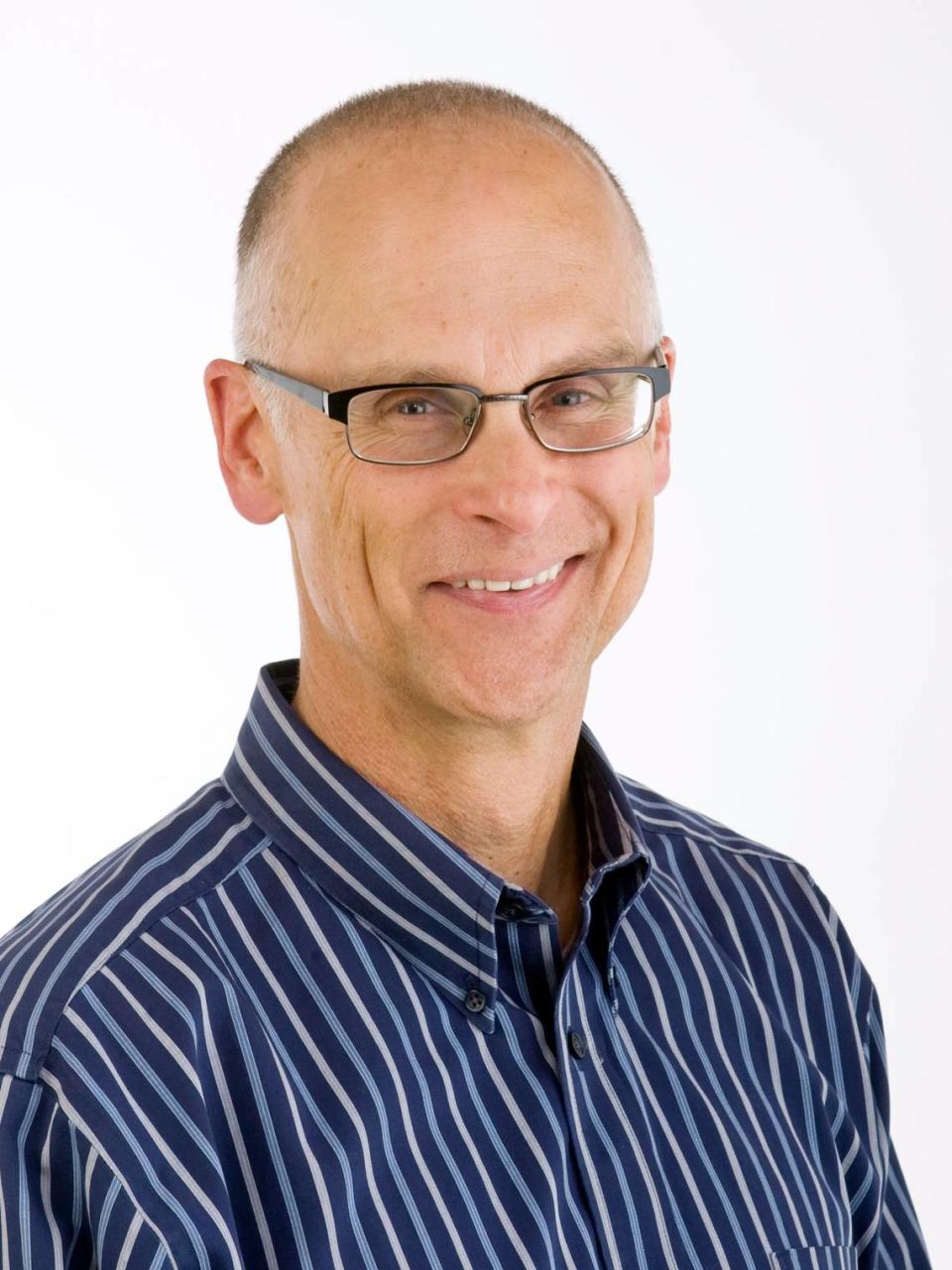Fresno suffers from ‘diaspora’ of Black community, says community’s city liaison | Opinion
- Oops!Something went wrong.Please try again later.
The Rev. Booker T. Lewis — BT, as he is known — is an outgoing man who has led Rising Star Missionary Baptist Church in west Fresno since 2003.
He also plays a second key role in the city: He is the liaison for Mayor Jerry Dyer to Fresno’s Black, Indigenous and People of Color residents.
The liaison program was launched three years ago as a proactive way for City Hall to connect better with Fresno’s major ethnic and racial groups. There are also liaisons to the Latino, Asian and Indian communities, as well as a liaison for those who are LGBTQ+.
The goal for each liaison is to serve underrepresented residents, help connect them to resources and make city government more accessible.
Following World War II, the city’s Black community faced redlining — the overt practice of banks to only loan money to Black customers for homes in west Fresno. That neighborhood did not receive the investment that occurred in other areas as Fresno grew northward.
Today Blacks make up 6.6% of Fresno’s population; Native Americans are 1.3%.
Lewis says most of the Black population still resides in west Fresno, but that the community is spread across the city.
Opinion
“I have been in this position two years, and I am still wrestling with the challenge of trying to figure out how to bring fragments of our community together so we can work together,” he said, “so we can build hope and prosperity in our community that would specifically address the poverty that impacts our families.”
Lewis met with me recently to discuss the issues he is trying to work on as a community liaison. What follows is a question-and-answer edited for length and clarity:
Describe your role as the BIPOC community liaison.
I see my role as being a person who can bridge gaps between city policy and politics and the people who actually live in the Black community.
The actual title of my position is — I am the liaison to the BIPOC community. I am doing my best to connect with not only the Black community, but also try to build some kind of relationship with the indigenous community because I owe them some attention as well.
Describe the health of Fresno’s Black community today.
The condition of the Black community in Fresno is scattered. We are scattered across the city. That is why our history and our heritage and those elements that represent our history in the city are so important to me. It is largely because of the lack of development in southwest Fresno. They just broke ground today (April 1) for the MLK park project (a new facility on Martin Luther King Jr. Boulevard). These things have been a long time coming.
I moved back to west Fresno 10 years ago in hopes that a housing development would be available. That just has not happened. We have about four that are poised to happen. But actual ground breaking, building and selling of homes, that has not happened.
You have people in our community, young people that have families, who would love to live in west Fresno. But they have children. And because they have children and families of five to six folks, it is difficult to not buy a house in another place in the city. The houses available over here are not as modern and not as up to date as other parts of the city.
The Black community is a fragmented community?
I am going to get in trouble (laughs). These are things that we don’t always talk about openly. These are things that, I am pretty sure, if people read these things, they will say, ‘Oh yeah, that is the truth, that is BT, he is telling them.’
Because I think that those are the kind of things we don’t usually share publicly — the difficulty and challenge of trying to bring people together and get them on the same … we are just so fragmented and so distant. Our operations are in silos. And we don’t always have the capacity to trust one another enough to build power and influence in our city.
Being a bridge between the community and City Hall is your goal. Explain.
The city has many departments that do work that impacts residents. Many times it is just our system does not allow for enough time for the residents to get a good understanding on what the city is trying to do and why they are trying to do it.
As a liaison, I want to create those venues and those forums where people have an opportunity to ask questions and get good answers.
What does the mayor need to do to help your community?
The mayor and the city need to dig deeper in investing in the repair of our community, given the hardship that we have struggled with for so many years. It is almost akin to a reparation. I am not asking you to send checks to addresses. What I am saying is we need to figure out how to dig deeper.
You cannot separate the disenfranchisement of west Fresno from the harm done to the Black community. Because that is just our roots. We have our own diaspora in the city of Fresno, scattered all over the city. It is difficult to maintain the continuity of a culture when you are scattered.
What do you want Bee readers to know about our Black community?
We are still here. We are still rich in culture and we have a rich heritage. It is my desire that we would we be given the opportunity to grow and prosper in the city as much as anyone else.


